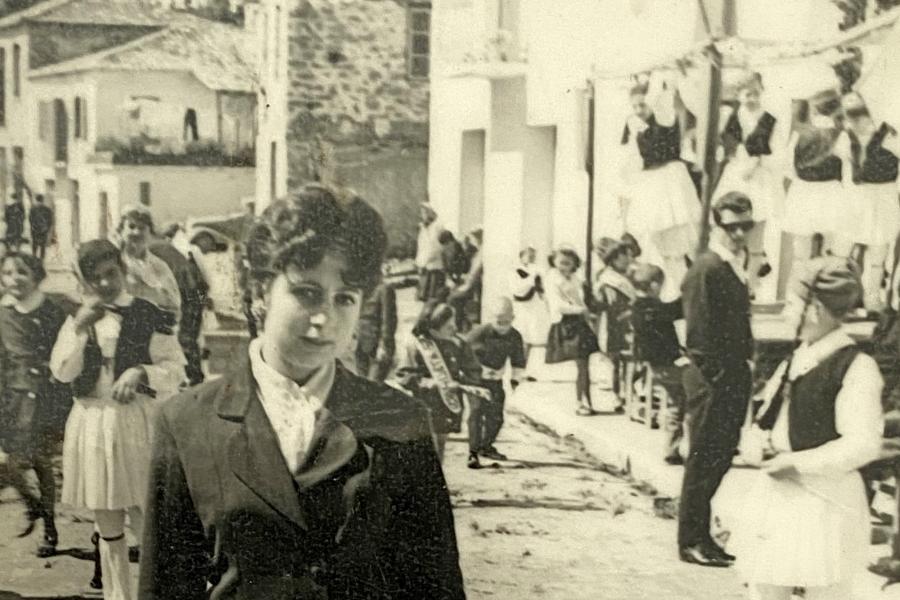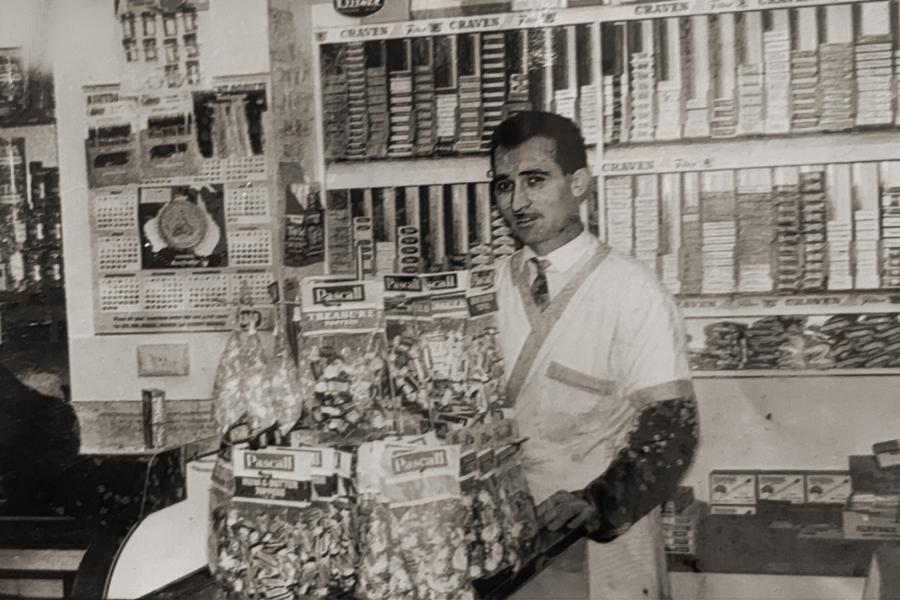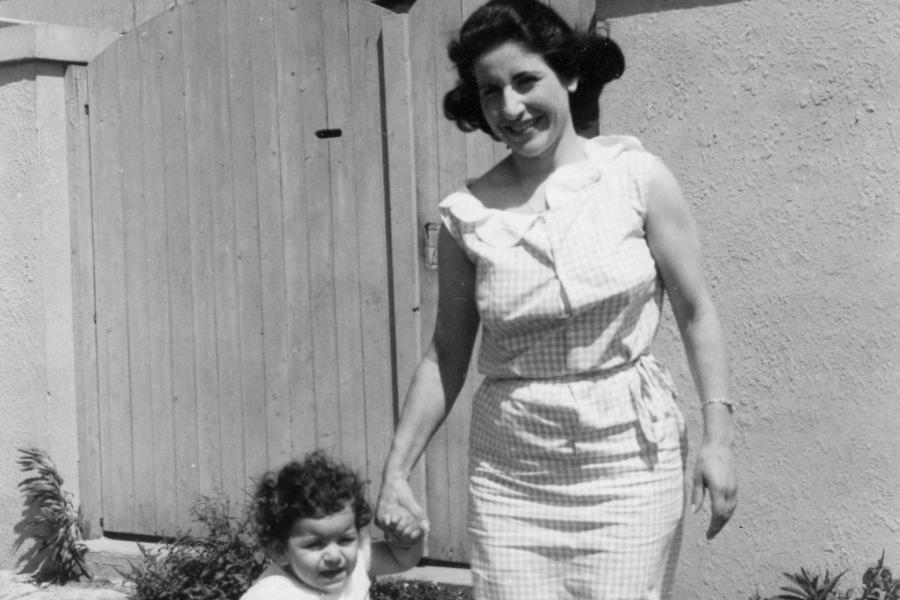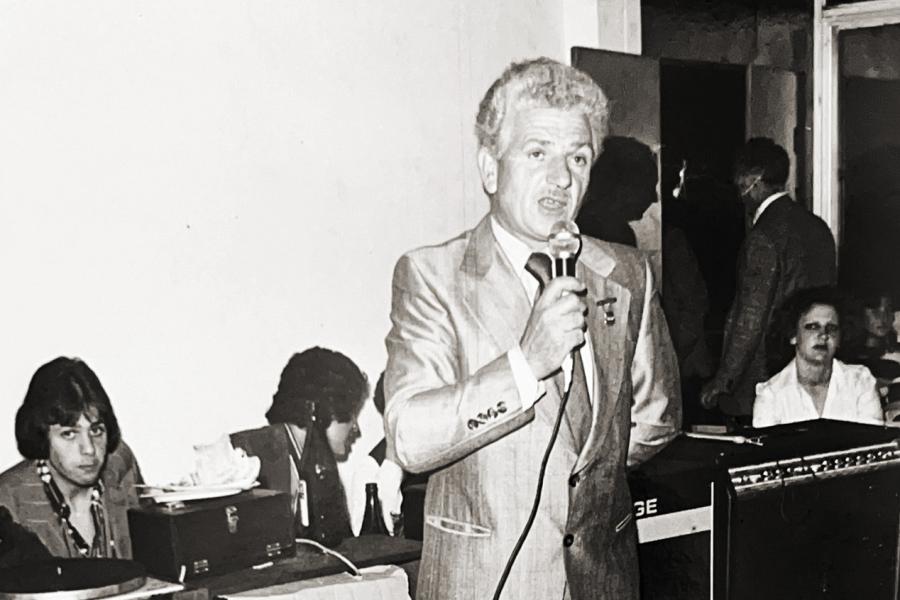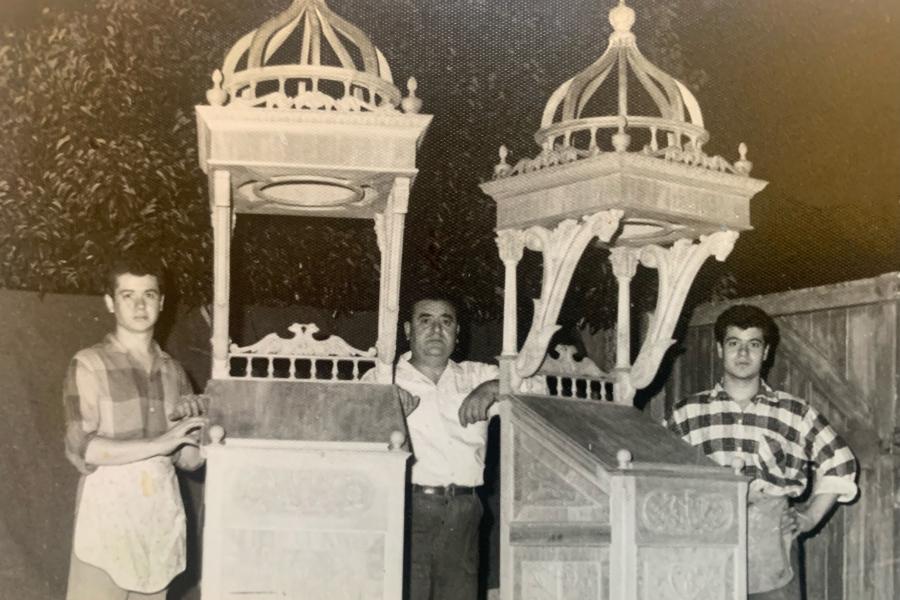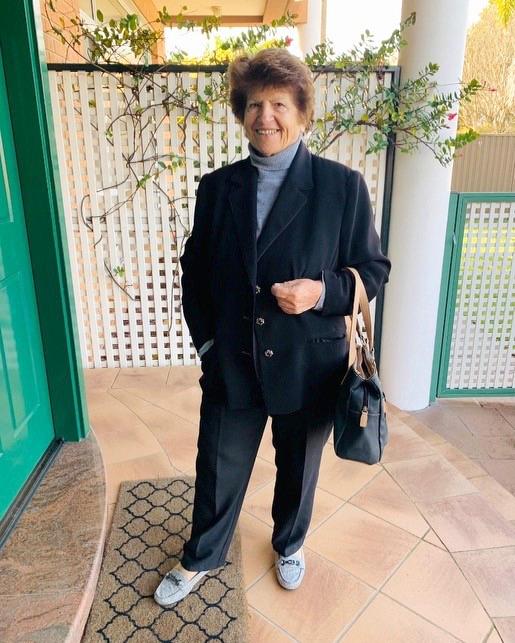

Speaker background
Stavroula Moschatos was born in 1935 and grew up in a poor farming family in Lakonia. Stavroula lived for most of the 1940s and early 1950s in Athens, where she mostly did nurse duties in a hospital. She was selected as a nanny for a Greek diplomat and followed his family to Sydney. Stavroula (or Voula) met her future husband through friends, who asked her employer for her hand in marriage. They had three children and settled in Kingsgrove in the mid 1960s.
Interview summary
Stavroula details her wartime ordeals, how she survived as a young country girl in Athens and her time as a nurse in post-war Athens. She discusses the circumstances of her migration and the unusual reasons why she ended up in Australia. She provides a detailed account of her journey, her homesickness in the early years, and the youth scene for Greek migrants in the late 1950s and early 1960s. The interview details her family life, how she assisted the migration of her siblings and cousins, and her working life.
Interview highlights
highlight
Stavroula explains the unusual circumstances in which she was selected to come to Australia.
At the hospital where I worked, a lady had a baby. Her husband was about to be sent to Australia as consul general, Mr Zafiriou [...]. This was 1957. They needed a nanny. They also had a two-year-old. They needed help…. His job included interviewing girls who were interested in migrating to Australia [...] and numerous girls would have to see him, and eventually I went to see him [...]. After some time, we all wondered if we were selected. We used to ask each other about results, we heard nothing. Maybe he was making fun of us. One day, as I was leaving work a young woman met me at the entrance and asked if I knew a ‘Voula Papadopoulou’. I said, ‘that’s me’. Mr Zafiriou has told me to tell you go to see him tomorrow at his home, at ‘Immigration’ [Intergovernmental Commission for European Migration]. When I went, he told me that, of all the girls, we have selected you. ‘Ok’, I said. ‘Thanks very much’. He said, the day after tomorrow we are leaving for Australia, so you will need to come to Immigration so I can have your papers ready. Ok. He did that. In fact, he had EVERYTHING ready. My passport ready, all paperwork, everything! Most people need months to get ready…. Within three weeks I was ready to board.
Timecode 36:30 - 40:10
highlight
Stavroula recalls the circumstances in which her marriage was arranged.
I met a lot of young Greeks at St Sophia in Paddington [...]. We got together on Sundays. We would dance. We would sing. This happened every Sunday. I started to feel better about being here. It was during that time that I met my future husband. As soon as he saw me, he wanted my hand in marriage. I said I could not, as I had agreed with the consul’s family to work as a nanny. He [future husband] said, “I don’t care. I will wait till you finish”. He was persistent [...]. One Sunday morning there was a knock at the door. I went to open it, and I see his parents. I froze. “We want to speak to the consul”, my [future] father-in-law said. They were invited in. “My son loves Voula. We know she can’t leave her job yet, but that’s fine. Why don’t they get engaged in the meantime?” [The consul said] “We should ask Voula want she wants”. They call me in. I was shaking [...].“Do you agree?” they asked. “We know you can’t leave right now” my father-in-law said, “but we don’t want to lose you either”. “Do you want him, Voula?”, they asked. I replied “Well, yes”. The consul said, “That’s fine.” “I will go and find another girl at Bonegilla [migrant camp] [...]. We don’t want to ruin your marriage prospects.”
Timecode 47:18 - 50:20

